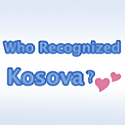Another long flight today (more than six hours) from Douala to Bangui, the capital of the Central African Repulic. More importantly though, most of the flight was spent flying over dense jungle. While most of this country is savannah (flat land), I am flying through the south side of the country, where there tends to be more jungle. Folks, that is a lot of time to spend flying over lions, tigers, giraffes, elephants, monkeys and thick forests!
Many times I have heard stories from other pilots about crashing in the jungle. They say that the chances of being found are slim because the trees of the jungle end up covering sight of the airplane from above. On top of that, in remote places like this, any type of search and rescue would take forever, since they would have to use animals to travel out here and not cars. Thanks to God that my baby plane’s engine held out and didn’t quit on me. Otherwise, my wild friends would have been having lunch with me.
During the last two hours of my flight, I begin to see more signs of human life and activity. Particularly, I start to see lots of fires. This is a surprise to me, but at this point, whatever I see here is a surprise to me. Since I never imagined in my wildest dreams that I would ever visit this part of the world, I didn’t have any idea of what to expect here. It looks like in this area, the farmers have a tendency to burn things I guess.
I’ve also notice that this country is very rural. Though it’s large geographically (about 60 times the size of Kosovo), the population is only twice the size of our country. It looks like most people live in tribes and live a subsistence lifestyle, relying on livestock. After landing and being in town for a few days, I also learn that the country is about 50% Christian (there are a lot of missionaries in this part of Africa) and the next major religion tends to be the indigenous beliefs. It appears that Islam is only a small portion of the belief system here.
I might mention here that I was also struggling during the flight with my navigational system. My GPS (global navigational system) stopped working during the last hour of the flight. This was great news, since it was also getting dark and now seemed to be the time that I remembered the fact that this part of Africa has many electricity shortages. Not only did my navigation system stop working while flying over my friends the lions and tigers, but by now it was complete darkness around me as I could not see very many lights below and there were all of those fires as I mentioned. It felt like I was flying into a smokey little ghost town.
Whew! Thanks to God that I landed safely in Bangui. The airport is smaller than I anticipated (and only half of the landing lights were working) and looks deserted. There isn’t much activity going on for this being an international airport. Oh well, that makes it faster for me to clear customs and get a taxi. Here in the Central African Republic, I did not have a choice in which taxi I would take. It was ordered for me by the military police. I guess this country has has some politically stability issues for quite awhile, which explains all of the police and UN workers I see.
I am starting to noitce more and more that there is a lot of UN presence in this part of Africa. I’ve been seeing more and more UN planes lately. From what I can gather, this country in particular seems to rely on the UN for a lot of their services. There also appears to be a lot of ‘other’ ways to make money here, like moving alcohol, diamonds, ivory, etc.
After a good night’s sleep, I wake up to a rather lazy day. It is Sunday, so I can’t get much done as far as the mission goes. So I spend the day trying to catch up on my writings, doing laundry, checking emails and making phone calls home.
On Monday, I was off to a good start, thanks to all of my media friends in the country. Every country that I go to now, the media people become my main contacts. On top of the taxi drivers, which help me to learn about their country, the media people are a great resource when it comes to learning about local life.
Here in the Central African Republic, I quickly learn that there are not many media houses. That must be due to having such a small population and being so rural.
Thanks to my new friends in the media here who gave me great interviews and for all of the interest that they have shown in covering the mission and Kosovo’s independence. Thanks to Mr. Samual Turpin, who authorized my interview with Radio Ndeke Luka. I like that name because because it roughly translates to ‘lucky bird’ or ‘bird who delivers a message’. Mr. Turpin has worked in many countries and was very knowledgeable about Kosovo since he worked there during our conflict and was in charge of establishing one of our radio stations there. Also thanks to Mr. Fred Yapendet, the journalist with a great personality who actually did the interview with me.
Since radio is a huge media resource down here, I also went to Radio Nehemie. Mr. Jean-Piere Nambate Dounia was very knowledgeable about Kosovo. It was nice to hear that some of the listeners were asking if I could do the interview in Sango, one of the local languages. Even if I was able to do that, I hear that there are over 80 ethnic groups (all with their own language), so it would still have been hard to be understood by everybody.
My third radio interview was with Mr. Keven Junior Zackou-Wangui at Radio Notre Dame (there’s a history of French colonialism here too). I owe him a big thank you for his in-depth interview.
At the newspaper Le Confident, Mr. Banale Fleury and Mr. Etienne Madondabou helped me do an interview and at Le Citoyan, it was Eddy-Stephane. Mr. Samba Ferdinand and Dotte Geoffroy Hyacinthe were the great personnel at the Le Democrate newspaper and Mr. Jimmy Nzecko and Mr. Sylvestre Krock at the newspaper Hirondelle were also very helpful in getting the word out about our mission.
Finally, the Director of the National television station, Mr. Michael Ouambeti authorized his journalist Mr. David Nvale to interview me.
At the Ministry of Foreign Affairs, the Attachee de Protocole du Minister, Ms. Viviane Nancy Dalemet had a great personality and was very persistent in getting me a meeting with her boss, the Minister himself, Mr. Antoine Gambi. During that meeting, Mr. Gambi gave me undivided attention and was very pleasant when discussing our mission. He mentioned that his personal position on Kosovo was that self-determination is a right that everyone should have and that he agrees with our independence. However, their file on Kosovo must go to his government so that they can make a decision as a group.
I hope that my visit to this remote and mostly tribal country will make a positive change here as far as Kosovo is concerned and that a decision will come out of this beautiful place soon.
Speaking of decisions, I find out that on this coming Sunday is when this country will have its next political election. As I mentioned earlier, this country has a history of political instability. This election alone has been postponed numerous times.
On a lighter note, I cannot forget to thank my taxi driver, Mr. Bruno Zoua. Though he ended up changing prices on me throughout the day (despite having agreeing to a set price in the morning), he was a trip to spend time with as he had the personality of a space cadet.
I am glad to have made progress here after wondering if I would ever make my landing. It was nice to spend my time here with humans instead of my friends the wild African animals. The next country up is Chad.
God Bless the Central African people.
Le Citoyen
La Redaction
L’HIRONDELLE
Le Confident PDF
















